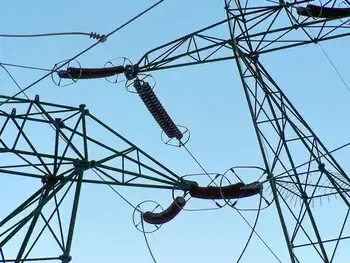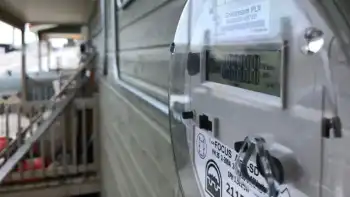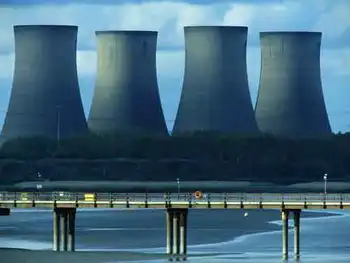The return of oil
By Financial Post
Arc Flash Training CSA Z462 - Electrical Safety Essentials
Our customized live online or in‑person group training can be delivered to your staff at your location.

- Live Online
- 6 hours Instructor-led
- Group Training Available
Beyond serving a quarter of the Big Apples base load electricity needs, Canada is the United States biggest source of imported crude oil. Minnesota, for example, gets about 83 of its oil needs from north of the border.
While U.S. President Barack Obama may have made much recently of steps to achieve energy independence, the countrys reliance on imports from Canada — as well as the volatile Middle East and other nations around the globe — wont be changing soon and perhaps not for decades.
Mr. Obamas plan to open up huge swaths of long offlimits parts of the U.S. coast to oil and gas exploration isnt expected to yield any significant production for five to 10 years.
And that might end up being a bit longer in the wake of this weeks oil spill in the Gulf of Mexico following the fiery blast on a drilling rig, which could give momentum to environmental groups opposed to opening up more of the offshore.
Ultimately, whether delayed or not, offshore drilling wont be enough to feed the United States oil habit.
As Mr. Obama himself said, the United States consumes more than 20 of the worlds oil, but has less than 2 of the worlds oil reserves.
About 70 of the oil consumed in the United States goes to feed gasguzzling automobiles. Unless the nations fleet of cars and trucks switches to electric power or vehicles can somehow be fuelled by much more plentiful natural gas, there is no way the country can get anywhere close to being energy selfsufficient, industry observers say.
With domestic production falling almost everywhere, the best we might hope for is that whatever we find might be enough to stabilize our production for a while, said Charles Ebinger, energy policy specialist at the Brookings Institution, a Washington thinktank.
Every time we lose a barrel of domestic production we offset it with imports, which upsets the balance of trade, he added.
The United States paid roughly US $350billion last year for 4.9 billion barrels of imported oil.
When you put that in context, anything you can do to keep more money home and give Americans jobs is good, Mr. Ebinger said.
The U.S. government estimates that between 39 billion and 63 billion barrels of oil could be recovered from the expanded areas proposed for possible drilling, which include off the Atlantic coast, the eastern Gulf of Mexico and the northern shores of Alaska.
That wont stretch far given the thirst for oil in the United States. Last year, even as the economy sputtered, 18.7 million barrels a day were consumed.
The recoverable oil estimates could be low. Much of the land hasnt been surveyed for oil for nearly 30 years.
If, down the road, the United States does end up with more oil than is needed to replace its current production decline, it could supplant some sources.
But Canada probably wouldnt be one of them, said Gary Mar, the Alberta governments top representative in Washington. I would suggest that oil from a nextdoor neighbour, friend and ally is the last place the U.S. would be looking at reducing its reliance as an offshore source.
Besides the advantage of being able to pipe the oil instead of shipping it on a tanker, Canadas oil sands create a significant number of jobs throughout the United States, Mr. Mar said.
The giant Caterpillar trucks used to help recover the oil come from Peoria, Ill., while their 13foothigh, US $60,000 tires are made in South Carolina.
If you buy a barrel of oil in Canada, you get it back in a lot of ways, Mr. Mar said. For every dollar on oil the U.S. spends in Venezuela or Nigeria, the country doesnt get much back.
Also in Canadas favour is the fact that recovering crude from the oil sands is less expensive than trying to find new strikes offshore, said Fadel Gheit, managing director of oilandgas research with Oppenheimer & Co. in New York. The lowhanging fruit has already been picked in the United States. Its going to take billions and billions of dollars to develop new sites. In the oil sands, theres no exploration risk.
The United States imports about 53 of its crudeoil needs.
Many Americans believe, mistakenly, that the country is heavily reliant on the Middle East for oil.
In fact, Canada is the biggest source of oil by a long shot. Alberta alone exports about as much to the U.S. market as Saudi Arabia does.
Increased production from the U.S. offshore wont have much, if any, impact on energy security. Even if the United States isnt buying from politically volatile states, some other nation will step in to replace U.S. demand.
The big problem with oil and security is the states that are empowered by their oil revenue, said Michael A. Levi, an energy expert at the Council on Foreign Relations, a New York thinktank. Both Democrats and Republicans have been slow to modernize their thinking on energy security. The expanded offshore drilling is addressing something else. It may have positive political, commercial and economic implications, but its not going to change the United States position in the world when it comes to national security.
Crude is trading at around US $85 a barrel. If it reaches US $125 a barrel again, as it did in 2008, then approximately half the wealth in the world — above and below ground — will be controlled by OPEC nations, R. James Woolsey, a foreignpolicy specialist and former head of the CIA, wrote in a recent oped piece for The Wall Street Journal.
The sunken oil rig in the Gulf of Mexico — a disaster some observers worried could rival 1989s Exxon Valdez oil spill in Alaska and taint Louisianas shores — appears to be contained, according to reports from the U.S. Coast Guard.
The blast isnt altering Mr. Obamas drilling strategy, White House spokesman Robert Gibbs told reporters.
Allan Pulsipher, executive director of the Centre for Energy Studies at Louisiana State University, said the quick cleanup of the spill could help make a case that offshore drilling isnt the danger to the environment it once was. Theyve built up a very good oilspill response and containment capability on the Gulf Coast, he said. Those guys showed up within a few hours.
IHS Cambridge Energy Research estimates that the new areas approved to open for possible exploration off the U.S. coasts could lead to the recovery of about 40 billion barrels of oil.
Areas kept off limits — the U.S. Northeast, Pacific coast and ecologically rich Bristol Bay in Alaska — could hold three times that much, said Bob Fryklund, a geologist who is now a vicepresident with IHS in Texas. If the offshore was expanded further, it could help, but its not enough to solve the overall problem. Nor is solar power or wind power or biofuels. Those are all part of the future mix.
The biggest game changer will be to break the United States dependence on oil.
In that regard, the expansion of offshore drilling is seen as a crucial bargaining chip to win support from drillbabydrill Republicans for climatechange laws.
Capandtrade legislation, which could diminish the use of fuels by putting a price on carbon emissions, probably wont end up in the final bill, said Mr. Ebinger of Brookings. But if we can get an energy bill out of Congress, we could see further efficiency goals for home appliances, new standards for automobiles and stricter building codes.
For the United States — which has some of the lowest prices at the pump in the world — tighter fueleconomy standards have the same impact as a gas tax, but have the virtue of being politically possible.
A gasoline tax could make people think twice, said Mr. Gheit of Oppenheimer. But theres no political guts to get Americans off their feeling they have a right to cheap gas. Europeans pay twice as much and theyre not complaining.
One wild card that could dramatically alter the landscape for the U.S. move toward energy independence is natural gas, which is plentiful in the country and much cleaner and cheaper than many other fuels, industry analysts and policy experts say.
First, we need to figure out a way to make it into a transportation fuel, said Mr. Fryklund of IHS. Hybrids are definitely working. Its a consumer issue as much as anything. Its about changing the way they think.











